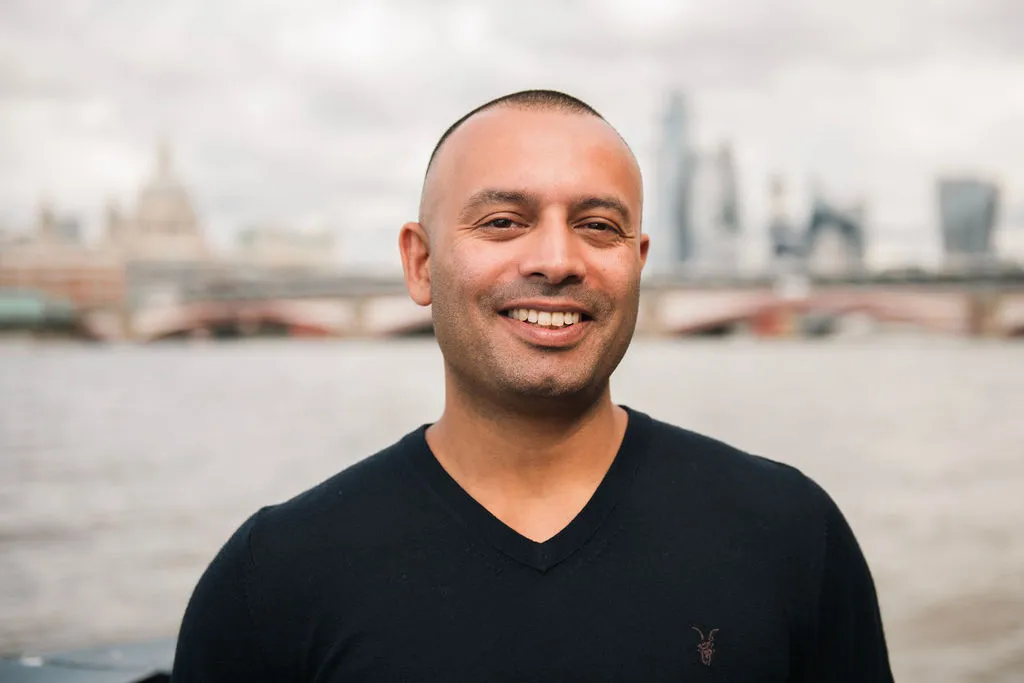#AbstractionLabs

How Inclusive Is Your Recruitment Agency?
Created by Robert Garner on Mon Nov 11 2024 and edited on Sat Feb 01 2025
I haven’t directly worked in the recruitment industry since March 2020 and things have changed massively since Covid. My experience was that recruitment definitely was not an inclusive environment and I probably worked in some relatively nice work places. I’ve heard some absolute horror stories, one old school, large tech recruitment agency comes to mind but I won’t regurgitate the incidents I’ve heard from that work place. My experience of recruitment was lots of alcohol, swearing, behaviour that bordered on bullying and staff being let go if they couldn’t keep up with the pace. Hardly an inclusive recruitment agency. I’m painting a grim picture but thankfully there are plenty of great recruitment agencies out there looking to foster an inclusive culture for their staff - even if they’re not fully there yet, they’re on the right path by taking affirmative action to put policies in place that are adhered to, for years to come.
What Is Inclusivity?
I won’t go too far into this as I think we all have a good idea and the definition is regularly thrown around but to put this article into context I’ll condense it into one sentence. We view inclusivity as about creating a working environment where everyone can be themselves and positively contribute through their unique perspectives and talents, without fear of ridicule.
How Inclusive Is Your Agency Currently?
First of all you need to assess your current hiring and working practices. We need to get a barometer of where you are currently and use this as a measure for success and how far along we are to achieving our objectives. Drill down into your work policies, benefits, incentives, work socials, staff backgrounds, etc. Look at your current recruitment process, from end to end. Evaluate your existing recruitment policies and look for any areas which may lead to biases arising in the process or any barriers that might prevent the hiring of diverse candidates.
Outside Perception
Creating an inclusive environment starts with how your business is perceived in the market, how it portrays itself, its social media content, its reviews, its hiring practices, how rec to recs see the firm and the culture you foster.
Inside Perception
Inclusivity isn't just about hiring more women because your agency is largely male dominated or more people from an Asian background because your agency is predominantly white. Inclusive recruitment practices can lead to a more innovative, adaptable, and successful organisation. How does everyone in the organisation view the culture? And don’t just ask those around you or the “popular kids”, you need to ask everyone how they feel.
Challenges & Barriers
Try to identify common challenges for the recruitment industry as a whole when it comes to fostering a culture of inclusivity. I’m afraid the recruitment industry still has a negative perception from those outside of the industry and this is perpetuated by a few players within it. You as a recruitment business owner or as an L&D manager may want to introduce an inclusive culture but is your whole company on board? There may be a resistance to change, prevailing industry biases, or just a lack of awareness. Formulate strategies ahead of time that your agency can employ to overcome these challenges.
Outreach
How are you reaching out to talent? Which job boards are you using? Which platforms are you using? How do you engage with talent? What does your messaging look like? Are these designed to attract a diverse applicant pool? Certain social media channels may attract people solely from a certain age range or focusing large amounts of your recruitment budget on university career fairs will obviously discount those who choose not or aren’t able to attend university.
Partnerships
Consider whether your recruitment agency partners with organisations or attends events that promote diversity and inclusion. There are some great recruitment charities and job boards focused on more diverse talent pools such as…
- Bridge of Hope
- The Black Recruiters Network
- The Black Leadership Job Board
- B-Radical
- Radical Recruit
Website Accessibility
What is website accessibility and is your website accessible? I could write a whole article just on this one topic but essentially, web accessibility means that your recruitment website is designed and developed so that people with disabilities can use it. This could include website tools that can read the text on your website for users, tools that can increase or decrease the font size, tools that can change the colour theme for those with colour blindness, and so much more.
Screening & Selection
Could any bias arise during the screening process, whether it’s unconscious or otherwise? Explore potential biases in CV screening. Do consultants make judgements based on a person’s name, where they live, their educational background, their age, what they look like, etc. I used to work with someone who had a bias against overweight people and perceived them as lazy. It might be an idea to remove names, addresses and educational backgrounds from CVs at the early stages of the selection process. Also do consultants or managers have unconscious biases that may need to be discussed to mitigate it affecting the hiring process?
What about your interview process? Could aspects of the process potentially favour certain groups over others? One big way to mitigate the risks at this stage are formally structured interviews. Suggest to the talent acquisition team, the adoption of structured interviews, set questions and standardised scoring systems to reduce subjective bias.
Interview Process
When candidates are moved onto the formal interview process, how does this happen? You need to think about the whole process. How are interviews set up? How is feedback communicated to interviewees, which communication platforms do you use? Do you offer telephony services for disabled candidates? Can interviewees enable subtitles during video interviews? Can candidates with disabilities easily access your building for face to face interviews? Do you give extra time for assessments for those with dyslexia, ADHD, etc.
Training & Development
I remember working internally years ago and undergoing my first unconscious bias training course. It was enlightening for all of us on the talent acquisition team, confronting biases that lay hidden within ourselves. Invest in your learning & development team / budget and highlight the importance of regular training sessions for everyone involved in the recruitment process. That could be training on unconscious bias, cultural competence, competency & value based questioning, crafting structured interviews processes, etc.
Inclusive Working Practices
Certain working practices are likely to attract or repel certain types of people. Flexible working is a great example here. Post Covid, a large, international legal software company reached out to me about a full stack developer role. The salary was good, the stack was what I was used to working with, the work didn’t seem that boring but they required all staff to be in the office five days a week! And when you have children there is no way I’m going into an office five days a week and missing out on precious moments with my daughters.
What’s your maternity & paternity leave like? Does your paternity leave match your maternity leave? Is your parental leave long enough to attract parents to come and work for you? Does your parental leave cover carers too? Do you have compassionate leave for situations where things don’t go as planned?
Incentives & Benefits
People at different stages of their careers and their lives will look for different benefits and commercial incentives. For example consultants in their early 20’s may be more enticed by all inclusive holidays to Ibiza, as opposed to consultants in their late 30’s who may be looking for higher basics to help them with mortgage applications while those in their 40’s may look for higher pension contributions.
Office
Is your workplace accessible for those with disabilities? Do you have ramps as well as stair access? Do you have lift facilities to all floors? Do you offer non-binary bathrooms as well as bathrooms for men and women? Do you have separate disabled facilities too?
Diversity Champions
Have you considered electing diversity officers or champions within the agency to oversee and promote inclusivity? Maybe consider taking champions from different teams, HR, delivery, business development, operations, etc. Champions should help to promote cultural activities, events, help to make the environment inclusive, help new starters with onboarding and integrating into theirs and the wider team. And of course they should be paid extra for this extra work.
Metrics & Accountability
How will you measure the success of the programmes and policies you put in place? Use your current base level as the barometer for change. Will you set objectives over a certain time period? Will inclusivity be gauged through anonymous employee surveys or outside, impartial third parties?
Continuous Improvement
This is just the start of the journey. The pace of positive change should be maintained and processes should be regularly reviewed for improvements. There’s a need for ongoing assessment and adaptation of strategies based on these metrics.
Legal & Ethical Considerations
I don’t want to weigh in too much here as I’m not a qualified solicitor so I’d recommend speaking with a solicitor who specialises in the recruitment & employee law sector. Have them give you an overview of legal frameworks governing employment and anti-discrimination laws that you must comply with as a business owner in regards to your employees but also a recruitment agency, working with candidates and representing your clients.
When it comes to ethical recruitment, there are some brilliant DEI experts, consultants and coaches out there so get in touch with them for advice.
Case Studies & Success Stories
All you have to do is look to LinkedIn for real world examples. Keep your eyes peeled for recruitment agencies that have successfully implemented inclusive hiring practices and the impact it had on their operations. Connect with the right people and you’ll have a tonne of inspiration.
The Future of Inclusive Recruitment
Maybe a total cop out but I have no idea about the future of recruitment. It will certainly involve a lot more technology, a lot less humans, more automations and more AI & ML. I’m not sure where this will end. Will it reduce bias or increase it?
Share this post:

Robert Garner
Rob has been working within the recruitment industry since 2006, selling recruitment advertising space, working within recruitment, running his own recruitment firm, launching job boards, working for in-house talent acquisition teams and creating enterprise level recruitment software and now websites for recruitment agencies.
